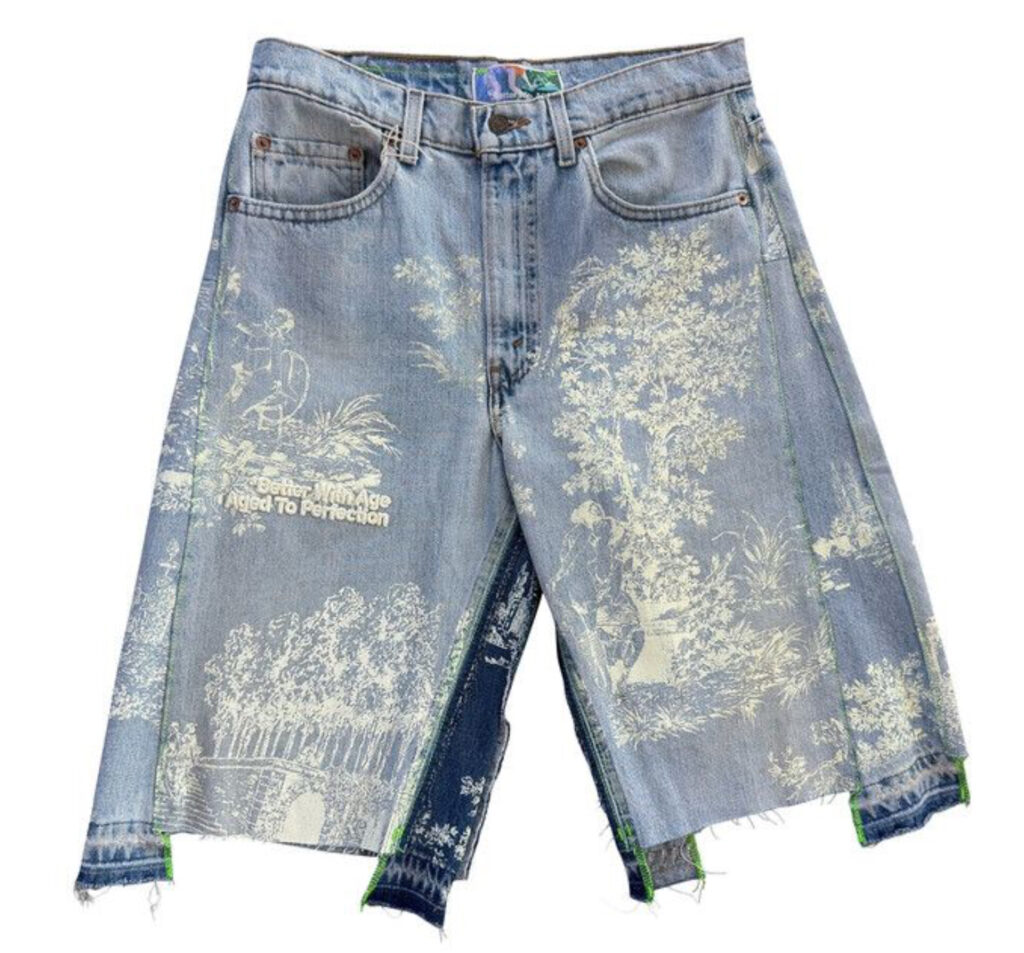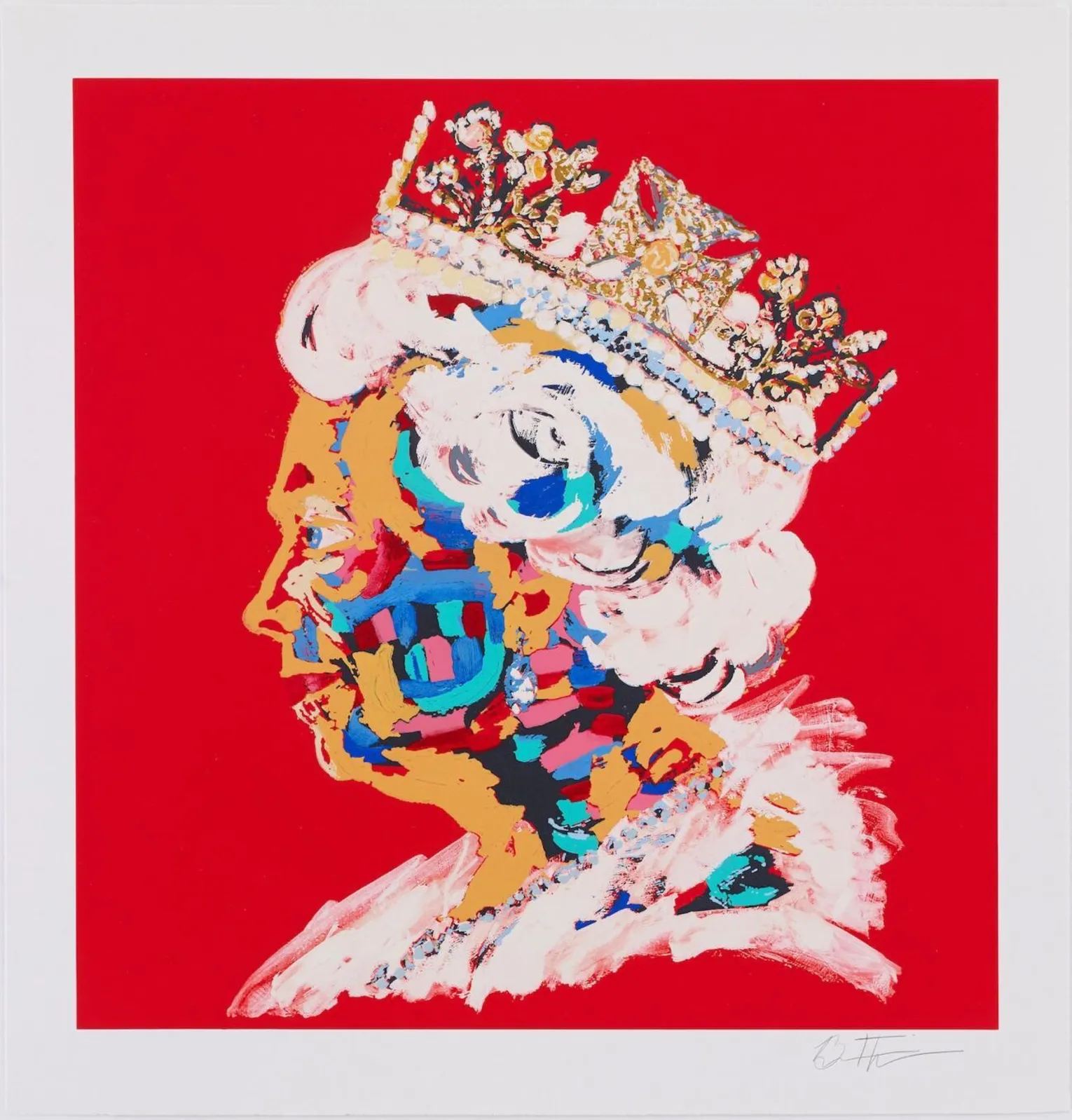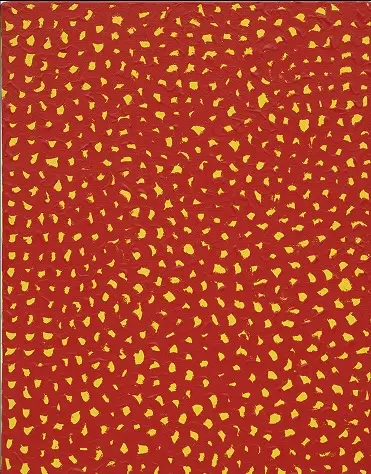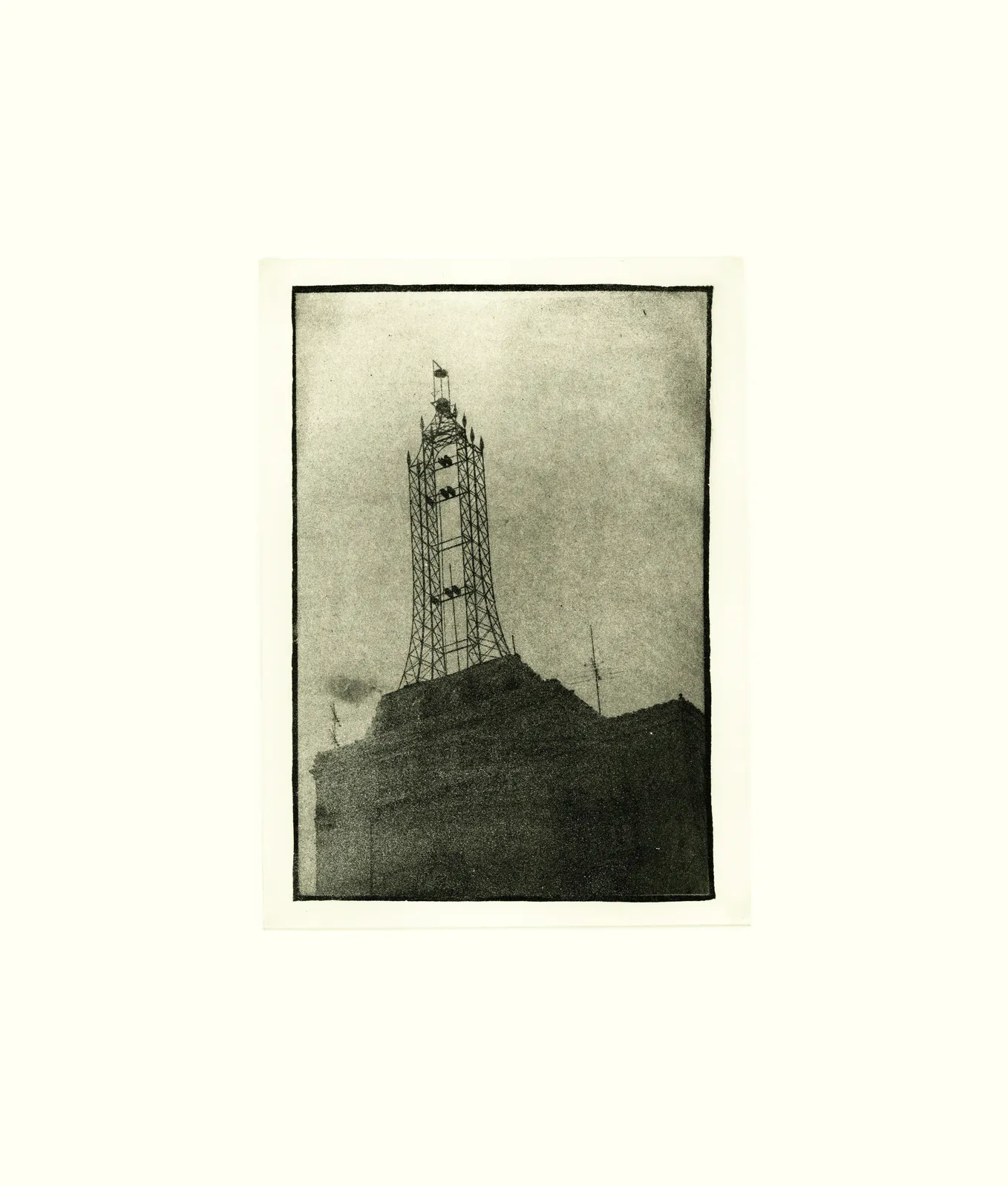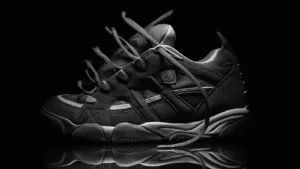Theresa doesn’t rush. She never did. Even when the world around her insisted on acceleration—faster jobs, faster internet, faster relationships—she moved like a song written in half-time. At 62, she’s not slowing down; she just happens to be built for the long haul. So are her clothes.
Her closet isn’t cluttered, but it tells stories. You won’t find trendy cuts or impulse buys. What you will find is denim—real denim. Heavy, unyielding, saturated with indigo and worn thin only where life rubbed against it.
Hanging on a hook like a relic and a badge of honor: her double-wide denim shorts. Faded in all the right places. Frayed edges softened by years of wear. Indigo holding on like a stubborn memory.
And she calls them by name. “These old girls,” she says, slapping the waistband affectionately. “They’ve outlasted lovers, jobs, and half my family. They know what I’ve been through.”
Denim as Testament
Fashion forgot what denim used to mean. Theresa didn’t.
She remembers when jeans weren’t stretchy. When you had to break them in like boots. When you bought a pair and they were stiff as cardboard, dark as midnight, and rough on the skin. But over time, they softened. They molded. They remembered.
There was a time when clothes were meant to be lived in, not just worn. When they were judged not by how clean they looked on Day One, but by how well they aged after Day 3,000. Denim, especially—the real kind—was proof of process. It bore witness. It evolved.
Theresa’s double-wide shorts are just that: process captured in thread and dye. She bought them in 1997, already oversized then, cut from a pair of men’s jeans two sizes too big. She cuffed the hem herself. The scissors slipped, left a jagged edge, but she didn’t care. Nothing about them needed to be precise. They weren’t meant for display. They were meant for use.
Now, almost 30 years later, they’re a second skin.
They’ve been to protests and family reunions. Worn while repainting the back porch. Worn to garden, to grieve, to celebrate. A bottle of white wine spilled on them in 2004. They caught sap from a pine tree in 2011. The front right belt loop ripped the summer her niece came out and Theresa danced barefoot on the lawn.
She patched the loop. Twice.
Double-Wide and Unapologetic
Why double-wide?
“Because skinny’s a lie,” she says.
In her twenties, Theresa starved herself into a size 4. She drank water to quiet her stomach and memorized calories like commandments. But even when she reached the number she thought would earn her acceptance, it didn’t feel like power. It felt like sacrifice.
She doesn’t do that anymore.
Now her thighs claim space. Her hips speak in full sentences. The double-wide shorts give her room—not just physically, but existentially. They say, You’re allowed to be here. Fully.
She wears them with crop tops now. Sometimes with boots. Sometimes barefoot. She wears them to the hardware store and to her artist friend’s gallery openings. They’re not fashionable. They’re not meant to be.
But they are iconic. Not because they follow a trend, but because they broke from one.
Aging Out of Shame
There’s a particular kind of freedom that only comes with time. When the chase slows. When the crowd thins. When the pressure to perform gets replaced by the desire to be.
Theresa remembers the years she tried to stay small—in voice, in size, in ambition. She thought shrinking meant safety. That if she just toned it down, softened the edges, wore the right thing, said the right thing, stayed agreeable, she’d be loved.
It didn’t work.
Now she’s louder. Not in volume, but in presence. She walks into rooms like she owns the space. Not because she thinks she’s better—but because she knows she belongs.
The denim helps. It’s like armor, but lived-in. Not stiff, not flashy. Just steady. Reliable. It tells the world: I’ve seen things. I’m not here to impress—I’m here to witness, to laugh, to help you move a couch if you need it.
Indigo Never Lies
Color fades, but character doesn’t.
The indigo in Theresa’s shorts has held on. Not like a fresh coat of paint, but like handwriting on an old letter. You can still read it, even if it’s faded. Maybe because it’s faded.
That’s the kind of beauty that matters to her now.
The deep blues near the seams. The almost-white streaks where her thighs rub. The hints of rust where she leaned against an old truck too many times. These aren’t flaws—they’re artifacts.
Like crow’s feet around the eyes. Or calloused palms. Or stretch marks from carrying weight that mattered.
We don’t throw out an old book because the pages are creased. We hold it closer. We respect what it’s survived.
No Nostalgia, Just Real Time
This isn’t nostalgia. Theresa’s not pining for the past. She doesn’t want to go back to anything.
She just knows how to stay present with what’s real.
Fast fashion? Disposable living? Chasing the new for the sake of it? She doesn’t buy it. Literally or figuratively.
She believes in holding on—to things that last, that prove themselves, that deepen with wear.
She believes in looking at her closet and seeing not options, but anchors.
She believes in breaking rules that were made to keep her small.
She believes in denim that doesn’t quit.
What We Keep
We live in a culture that throws things away. Not just objects—people, moments, identities.
Theresa doesn’t.
She keeps. She mends. She repurposes. Not out of scarcity, but out of respect.
The shorts? They should’ve been trashed years ago, according to retail logic. But that logic never had to live through a miscarriage, or a divorce, or the joy of holding your grandbaby for the first time.
Those shorts have.
That’s why she still wears them.
That’s why they still matter.
Better With Age
There’s a phrase that used to make her bristle: “aging gracefully.” It sounded like a demand to fade quietly, to shrink politely.
Now, she laughs at it.
“I’m not aging gracefully,” she says. “I’m aging loudly. Like feedback from a speaker turned all the way up.”
She’s better now. Stronger. Softer in the right places. Sharper in others.
And she knows exactly who she is:
A woman in her sixties. No apologies. No filters. With legs she earned, scars she doesn’t hide, and denim shorts that tell the whole damn story.
The Legacy of Indigo
Someday, someone will find those shorts in a cedar chest, or a garage bin, or maybe still hanging on the same hook by the back door.
They’ll run their fingers over the frays. Hold them up to the light. Try to imagine the life that wore them in.
If they listen closely, they might hear Theresa’s voice:
“I didn’t need to stay new. I just needed to stay me.”
No comments yet.

